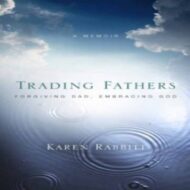Emotions give us information about what we really believe.
 Anger, for instance. If we get angry when someone hurts us, we believe we are worth being treated well. A store manager refuses to refund a thousand dollars for a defective laptop. “It’s not working because you dropped it. That’s not covered.” We know we did not drop it. We are angry. We believe in justice and the manager’s behavior offends justice.
Anger, for instance. If we get angry when someone hurts us, we believe we are worth being treated well. A store manager refuses to refund a thousand dollars for a defective laptop. “It’s not working because you dropped it. That’s not covered.” We know we did not drop it. We are angry. We believe in justice and the manager’s behavior offends justice.
If we are treated without justice and don’t get angry, we believe we deserve how we were treated. Or we have given up expecting justice. Or we are not acknowledging our anger. Sometimes we don’t even acknowledge our anger to ourselves. For whatever reason, anger feels dangerous or wrong.
What we do with our anger is a different story. What I’m saying here is that an accurate reading of our emotions helps us understand ourselves. The next time we feel angry, we can ask, “What’s this about?” “What is going on here?” “Underneath this anger, do I feel sad or fearful?” “If so, what’s that about?”
A crucial piece of reading our emotions: What memories flash through my mind right now? Is what I’m feeling familiar? When have I felt this way before?
If these questions don’t yield helpful answers, ask Jesus. Even when we can’t read what we’re feeling, he can. And that self-knowledge leads to wisdom.
Jesus, be our wisdom. Thank you that you are the stability of our times, a wealth of salvation, wisdom, and knowledge. (Isaiah 33:6)
